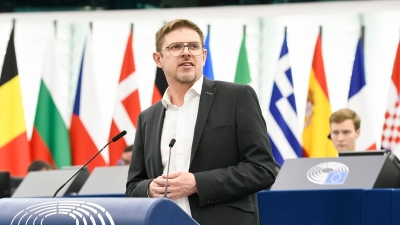Poland’s biological medicines inequality goes under microscope

Poland’s poor availability of biological and biosimilar medicines is under the microscope, with policymakers pushing for new accessibility measures to benefit patients in need of advanced therapies.
Polish drug programs, developed by the Ministry of Health and financed by the National Health Fund, were designed to ensure that the costliest treatments are accessible to a restricted patient pool, specifically those who are the most severely ill. The physician at a health facility with a contract in this area makes the decision regarding eligibility based on detailed criteria for inclusion in the program, but this does not guarantee equitable access to limited medicines. Remodelling of the programs is being considered.
“The introduction of drug programs has generated a certain number of centres specialising in biological treatments. However, as the method gained popularity, it became apparent that there are too few centres available,” Professor Przemysław Kotyla, head of the Rheumatology Department of the Provincial Specialist Hospital in Sosnowiec, emphasised during the IX Congress of Health Challenges.
A potential solution could involve enabling patients to receive biological treatment outside hospitals.
According to the report “Inequalities in Access to Biologic Treatment for Autoimmune Diseases in Europe,” approximately 1.8% of patients with rheumatoid arthritis in Poland had access to biologic therapies. Meanwhile, in other European countries, they are used by around 20-25% of patients.
Cost is king
The main reason is that biological drugs are very expensive therapies. Hence, access to them in Poland is ensured through drug programs.
“The Polish market is characterised by a low utilisation of biologic drugs,” Krzysztof Kopeć, President of The Polish Union of Employers in the Pharmaceutical Industry – Medicines for Poland, told Euractiv. “Despite the gradually increasing availability of biological treatments in Poland, still fewer patients benefit from it compared to other EU countries,” he added.
There are subcutaneously administered medications available on the market that could feasibly be used on an outpatient basis. However, in the case of intravenously administered medication, patients would still need to access a facility specialising in day therapy.
Providing treatment outside of hospitals becomes even more crucial when considering that biologic medications restore patients’ ability to function normally.
Competition and pricing cycles
As emphasised during the conference by Violetta Zajk, the president of the association for patients with rheumatological diseases said: “When it comes to rheumatological patients, these medications are often the only possible solution for the patient to get out of bed. Very often, patients are in such a state that they cannot function at all.”
Another argument for excluding certain biological drugs from drug programs is the significant price drop after the patent protection of reference biological drugs expires.
“Pharmaceutical companies introducing new biological drugs typically enjoy a market monopoly for around two decades,” Kopeć told Euractiv. Once the monopoly expires, other manufacturers begin producing these drugs.
“The greater the competition in the market, the greater the price drop, benefiting patients and healthcare systems,” Kopeć explained.
Market competition significantly reduces their prices, sometimes by as much as 80%. However, despite the significant price reduction of these drugs due to the entry of biosimilar competition into the market, the access of Polish patients to biological medicines has not increased significantly.
Polish future of biological treatment
According to experts, however, it will not be possible to achieve the degree of accessibility seen in other countries without organisational changes.
The National Drug Manufacturers, along with Prof. Brygida Kwiatkowska, a national consultant in rheumatology, and Violetta Zajk, have called on the Ministry of Health to expand access to specific biologic drugs, beyond drug programs.
They propose making these drugs available not only in hospitals as part of drug programs but also in specialised outpatient care settings, such as local clinics closest to the patient.
The medication would be administered to the patient during routine health check-ups and dispensed for continued therapy at home. Such a solution would relieve doctors treating patients in critical condition, those hospitalised, and patients, often dependent, would not have to travel to facilities often far from their place of residence just for medication administration.
The Ministry of Health, when asked by Termedia about the possibility of making biologic drugs available in outpatient clinics as well, responded that such a possibility is currently under consideration. At the same time, the Ministry emphasises that there are currently no “systemic problems” with access to biological drugs in the Polish market.
“The Minister of Health does not purchase drugs or engage in the trade of medicinal products; however, ensuring pharmacotherapy for Polish patients is one of the priorities of pharmaceutical policy,” it reported.
[By Paulina Mozolewska, Edited by Vasiliki Angouridi, Brian Maguire | Euractiv’s Advocacy Lab]
Read more with Euractiv




